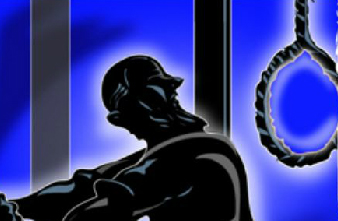
New Delhi, August 19: They are on death row even after the Supreme Court admitted — not once but thrice — that the decisions awarding death sentences had been rendered per incurium (in ignorance). The miscarriage of justice has prompted 14 retired judges of the SC and high courts across the country to appeal to President Pranab Mukherjee to turn the capital punishment imposed on nine persons into life sentence.
Led by former SC judge P B Sawant, the 14 retired judges signed up separate letters to the President pointing out that the death sentences given to these nine persons by various two-judge benches of the SC were "contrary to the binding dictum of rarest of rare" propounded in the 1980 five-judge bench verdict in Bachan Singh vs State of Punjab.
The Bachan Singh prescription of weighing the circumstances relating to "the crime as well as the criminal" before pronouncing a death penalty was disregarded for the first time in 1995 in Ravji Ram Chandra vs State of Rajasthan where a two-judge bench ruled that it was "the nature and gravity of the crime but not the criminal, which are germane for consideration of appropriate punishment in a criminal trial."
The Ravji approach of focusing on the aggravating circumstances (namely, the crime) at the expense of the mitigating circumstances (namely, the criminal) served as a precedent to at least six judgments, leading to the hanging of Ravji in 1996 and Surja Ram the following year. The erosion of the rarest-of-rare doctrine was finally decried by the SC in 2009 in Santosh Bariyar vs State of Maharashtra, followed by two more such correctives in 2010 and 2011. Earlier this year, the then President, Pratibha Patil, accepting the then home minister P Chidamabaram's recommendation, commuted the death sentence to life in two of the seven cases, which had been guided by the Ravji verdict rather than the Bachan Singh verdict.
Responding to a campaign launched by human rights lawyer Yug Mohit Chaudhry, the 14 retired judges, who include five former chief justices of HCs, wrote to the President to commute the capital punishment in the remaining five cases involving nine persons. The appeals from the retired judges were sent to the President on Friday. With the change of guard in the home ministry, all pending mercy petitions from death penalty convicts are due to be considered afresh by the new home, Sushilkumar Shinde.
In their appeals, the retired judges took pains to clarify that none of the cases in question involved crimes against the state. Further, the concerns raised in their appeals have nothing to do with the larger debate about the desirability of retaining the death sentence.
"Rather they pertain to the administration of the death penalty in a conscientious, fair and just manner," the ex-judges said. "Executions of persons wrongly sentenced to death will severely undermine the credibility of the criminal justice system. This matter goes to the very heart of our Constitution because it involves the taking of lives by the state on the basis of judgments admitted to be erroneous by the Supreme Court." Those who signed these unprecedented appeals also include Justices A P Shah, B A Khan, Bilal Nazki, P K Misra, S N Bhargava, B H Marlapalle, B G Kolse-Patil, Hosbet Suresh, Prabha Sridevan, K P Sivasubramaniam, Ranvir Sahai Verma, P C Jain and Panachand Jain.




Comments
Add new comment